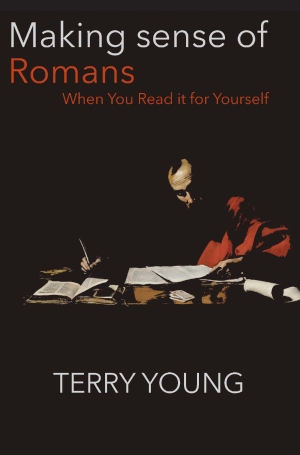Making sense of Romans when you read it for yourself
Terry Young on how he created a resource to help his Baptist church deepen their understanding of Romans
 At Slough Baptist Church (SBC), Sunday teaching starts with breakfast, where some of the trustees meet weekly to chat and pray before work. Elders take turns to plan series for the teaching team (six or eight regular speakers) to deliver.
At Slough Baptist Church (SBC), Sunday teaching starts with breakfast, where some of the trustees meet weekly to chat and pray before work. Elders take turns to plan series for the teaching team (six or eight regular speakers) to deliver.
Sometimes the teaching is based on a book or commentary: Ken Bailey’s, Paul through Mediterranean Eyes was helpful for 1 Corinthians, while a slim book at Christmas, such as Alistair Begg’s, Christmas Playlist, can structure the season and be cheap enough to give away to enquirers.
It was at one of those breakfasts that we started to knock a few ideas around for a series on Romans, which hadn’t been preached for a while. Andy, the pastor, wanted something on gifts, too, if that would fit. More ideas started to converge, and I went off to plan.
A few months later there was still no teaching plan for Romans and Andy was asking where we were going when I started to circulate draft chapters for comment. I explained that I wasn’t sure but that I was having fun. And I was – friends and members of the congregation read bits and provided feedback. Someone from another church (not even a Baptist church) went through my references with a fine-tooth comb. Some of their comments are on the back cover. Finding a publisher was another escapade, and Words by Design has created an imprint for my books: Words by Faith.
Having postponed the series on Romans at least twice and by more than a year, we finally had a plan and a book: Making sense of Romans when you read it for yourself.
The teaching team preached it in two spells toward the end of the year and in the spring of the following year, while some of the home groups ran with it, too. I enjoyed hearing the material interpreted by others, discovering which ideas they would select from each chapter and what illustrations of their own they would add. You can pick up the talks on the SBC website if you go to the resources page and type in, Romans.
Making sense of Romans when you read it for yourself is based on two simple ideas. The first is that there has to be a better way into Romans than all that verse-by-verse analysis. I think there is: elsewhere, Paul talks about faith, hope and love. And so we set out to find the faith story in Romans (which most people have heard of), the hope story (more elusive, but distinctively there in Romans) and the love story which, in Romans, has a particular theme of friendship.
The second idea is that Christians should use the internet for Bible study at least as much as they would use it for anything else – so I try to point to ways in which you can now do in a couple of minutes what used to take the best part of a day. And there’s a chapter on gifts! Each chapter ends with questions for discussion.
One day, an email from Tasmania enquired about copying the book. I looked up the church online and started a conversation with one of the leaders. They were planning an integrated teaching programme with home groups coordinating their studies with their morning worship teaching. My publisher sent 20 copies and they sent him a generous contribution.
I realised that home groups might prefer to have the questions as a booklet and so I’ve just produced the study guide for Romans.
And then, I discovered – a bit like Paul with his missionary journeys – that once you have done one, it is rather fun to have a second go. I don’t do the breakfasts these days, and so I have had time to publish John on… (John on Light and darkness, John on glory…) with its study guide.
I believe passionately that we should have more excitement in our study and if anyone within driving distance would like a workshop on using these books in their home groups, I’m more than happy to toddle over and spend an evening or a Saturday afternoon with the group leaders.
Terry Young was born to missionary parents working in the Middle East. He has always tried to unify his life of worship and secular missions, and has been part of church leadership teams in Essex and Slough. He has written a few books that link worlds, including After the Fishermen, and Jake, Just Learn to Worship.
After a mobile early childhood his family settled in the UK to the northwest of Birmingham, and eventually he studied at the local university. After his doctoral studies he worked for 16 years in Chelmsford undertaking research and business development in the aerospace sector, where his interest was in fibre optics and photonics. In the end he gravitated to healthcare systems and move to Datchet with a position as a university professor.
Baptist Times, 02/10/2018